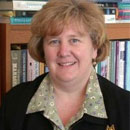Initial Licensure - Elementary Education
The mission of the Lasell University Master of Education degree programs is to provide new and experienced teachers with;
· a broad understanding of practice and theory related to curriculum and instruction.
· familiarity with the needs of diverse learners and resources for meeting those needs.
· engagement in professional collaboration; exploration and support of community resources.
· and experiences as consumers and producers of research.
The Practicum for students pursuing initial licensure in elementary education (grades 1 - 6) provides a minimum of 300 hours of student teaching experience in an elementary classroom under the supervision of a qualified professional over the course of the fall-term semester spring or fall.
The Practicum for students pursuing initial licensure in elementary education (grades 1 - 6) provides a minimum of 300 hours of student teaching experience in an elementary classroom under the supervision of a qualified professional over the course of the fall-term semester spring or fall.
| Course Code | Course Title | Credits |
|---|---|---|
| Core Courses | ||
| ED711 | Curriculum & Assessment Diverse Learners | 3 |
| ED712 | Literacy Instruction: Elementary | 3 |
| ED713 | Reading Supports for Elementary Learners | 3 |
| ED761 | Sheltered English Immersion | 3 |
| ED771 | Understanding/Using Educational Research | 3 |
| ED772 | Teacher as Researcher | 3 |
| ED773 | Teacher as Leader | 3 |
| Concentration Courses | ||
| ED720 | Mathematics Concepts & Curriculum | 3 |
| ED721 | Science & Technology Concepts/Curriculum | 3 |
| ED722 | Social Studies Concepts & Curriculum | 3 |
| ED796 | Practicum: Elementary | 6 |
Students already SEI endorsed by the state will take ED773 - Teacher as Leader instead of ED761 - Sheltered English Immersion
The Practicum for students pursuing initial licensure in elementary education (grades 1 - 6) provides a minimum of 300 hours of student teaching experience in an elementary classroom under the supervision of a qualified professional over the course of the fall-term semester spring or fall.
Elective chosen with Advisor from ED or SPED offerings
The Initial Licensure track curriculum is as follows:
· 18 credits in required core courses
· 18 credits in licensure requirements
Additional Coursework
The Education Department will review your transcripts for evidence of completing coursework in areas on the MTEL General Curriculum tests. You may be advised to complete additional coursework to support your success in the program. In particular, you MUST complete a course in child or human development by the completion of 18 credits in the M.Ed. program.
MTEL
As an approved Massachusetts teacher licensure program, Lasell incorporates requirements for passing required sections of the licensure test, MTEL:
| Communication & Literacy, reading subtest | By the completion of 6 graduate credits |
| Communication & Literacy, writing subtest | By the completion of 6 graduate credits |
| Pass any two of the following: (1) General Curriculum, Multi-Subject, (2) General Curriculum, Mathematics, or (3) Foundations of Reading | By the completion of 18 graduate credits |
| Pass all of the following: (1) General Curriculum, Multi-Subject, (2) General Curriculum, Mathematics, or (3) Foundations of Reading | Before entering the practicum |
ED711 - Curriculum & Assessment Diverse Learners
This course considers research, principles, and strategies for effective instruction and classroom organization, particularly in the context of supporting diverse learners and teaching in diverse settings. Topics include differentiated instruction, curriculum planning and resources, formal and informal assessments of student progress, modifications appropriate to meet linguistic and cultural differences, and accommodations for special needs learners. Requires classroom observations at multiple locations.
ED712 - Literacy Instruction: Elementary
This course explores literacy learning and teaching in grades 1 – 6. Topics include the role of phonemic awareness, phonics, and word analysis in reading and writing; the relationship among vocabulary development, comprehension, and fluency; formal and informal assessments to measure literacy development and guide classroom instruction; and effective instructional strategies and materials to support elementary learners in reading and writing. Includes focus on differentiating instruction for readers and writers with diverse linguistic and cultural backgrounds. Requires a pre-practicum.
ED713 - Reading Supports for Elementary Learners
This course examines formal and informal assessments of reading difficulties, especially those currently in use, and their analysis, interpretation, and application to classroom instruction and placement. Students explore strategies, materials, and modifications appropriate for classroom teachers, as well as specialized programs. Requires classroom observations. Prerequisite: ED 712.
ED720 - Mathematics Concepts & Curriculum
This course explores central areas of mathematics in the elementary classroom, as well teaching strategies and methods appropriate for learners at various stages of understanding. Topics include number and operations; functions and algebra; geometry and measurement; statistics and probability; and problem solving. Requires classroom teaching.
ED721 - Science & Technology Concepts/Curriculum
This course provides understanding of essential concepts in the physical and life sciences, including technology and environmental science. Reviews standards for teaching and learning science and technology, as well exploring area resources for teachers and elementary students. Integrates technology appropriate for elementary classrooms.
ED722 - Social Studies Concepts & Curriculum
This course provides understanding and critical examination of major events and eras in American and world history through varied perspectives. Includes strategies for integrating social studies and other content areas, including literacy and arts. Students explore local resources for teaching social studies and become familiar with Massachusetts Curriculum Frameworks.
ED761 - Sheltered English Immersion
This course provides a grounding in current theory and practice related to teaching English Language Learners. In particular, students learn to effectively shelter their content instruction, so that ELL students can access curriculum, achieve academic success, and contribute their multilingual and multicultural resources as participants and future leaders in the 21st century global economy. Course includes a pre-practicum in license-appropriate classrooms. Prerequisite: ED 713 or Department permission. As required by the state this course is 90% in face-to-face.
ED771 - Understanding/Using Educational Research
This course explores major paradigms of educational research, including concepts, methods, and terminology related to each. Students read, analyze, and discuss both seminal and current research in relevant areas; study trends in educational research; and apply findings to their own practice by designing a classroom-based research project with CPHS approval. Prerequisite: completion of at least 21 credits in the graduate education program. Requires presenting proposal in symposium setting
ED772 - Teacher as Researcher
This course focuses on conducting, refining, completing, analyzing, reporting, and presenting the research project designed in ED 771 in research paper format and presentation. Requires presenting findings in symposium setting. Prerequisite: ED 771.
ED773 - Teacher as Leader
This course explores various aspects of leadership and change in education, business, and other professions. Includes theories and models of leadership, organizational change and behavior, and policy analysis, as well as approaches to mentoring and coaching. Helps participants identify their own leadership styles and goals.
ED796 - Practicum: Elementary
This course provides a minimum of 300 hours of student teaching experience in an elementary classroom under the supervision of a qualified professional over the course of the full-term semester Fall or Spring. Includes a seminar to discuss issues such as management, planning, professional development, and moral and ethical aspects of teaching. In addition students will complete the Comprehensive Assessment of Performance (CAP) required as part of an approved program with the Massachusetts Department of Elementary and Secondary Education. Prerequisites: Pass all required MTEL; cumulative minimum GPA of 3.0; complete at least 27 credits in the graduate education program; required pre-practicum experiences.
ED797 - Pre-Practicum
Pre-Practicum (3 credits). This course provides a minimum of 150 hours of pre-practicum experience in a public school under the supervision of qualified professionals. Prerequisites: cumulative minimum GPA of 3.0 and approval by Department Chair or Graduate Coordinator.
ED798 - Additional Pre-Practicum
Additional Practicum (3 credits). This course provides a minimum of 150 hours of practicum experience and completion of the Candidate Assessment of Performance CAP in a public school under the supervision of qualified professionals. Prerequisites: cumulative minimum GPA of 3.0.

Cristina Haverty
Associate Vice President of Workforce Development and Global Engagement/ Professor, Athletic Training
Office: Alexander STC
Email: chaverty@lasell.edu

Lori Rosenthal
Assistant Provost; Professor of Psychology
Office: Plummer
Email: lrosenthal@lasell.edu

Janice Barrett
Professor of Communication; Chair, Graduate Communication Program
Office: Donahue 108
Email: jbarrett@lasell.edu

Keith Belmore
Associate Professor of Athletic Training and Graduate Chair of Athletic Training
Office: Alexander STC 104N
Email: KBelmore@lasell.edu

Linda Bucci
Professor & Program Chair of Justice Studies, Graduate Chair of Criminal Justice
Office: Plummer
Email: lbucci@lasell.edu

Sarah Giasullo
Assistant Professor of Athletic Training; Graduate Chair of Health Sciences
Office: Alexander STC 104T
Email: SGiasullo@lasell.edu

Janet Huetteman
Graduate Chair of Management and Marketing; Associate Professor of Marketing
Office: 23 Maple Street, Office #5
Email: JHuetteman@lasell.edu

Young-Tae Kim
Associate Professor of Sport Management; Graduate Interim Chair of Sport Management
Office: Alexandar STC
Email: ykim@lasell.edu

Ron Laham
Assistant Professor of Athletic Training/ Exercise Science
Office: Alexander STC
Email: RLaham@lasell.edu

Luis Lopez-Preciado
Associate Professor of Communication
Office: Donahue
Email: LLopez-Preciado@lasell.edu

Meryl Perlson
Chair of Communication; Professor of Communication
Office: Donahue 107
Email: mperlson@lasell.edu

Matthew Reilly
Chair of Business and Interim Chair of Sport Management; Assistant Professor of Business
Office: DeArment
Email: MReilly@lasell.edu

Claudia Rinaldi
The Joan Weiler Arnow ’49 Professor/Professor of Education, Chair of Education
Office: Brennan Library
Email: CRinaldi@lasell.edu

Daniel Sargeant
Associate Professor of Sport Management
Office: Alexander STC
Email: DSargeant@lasell.edu

Nancy Waldron
Assistant Provost; Professor of Entrepreneurship and Management
Office: DeArment
Email: nwaldron@lasell.edu

Brian Wardyga
Professor of Communication; General Manager, 109.2FM WLAS & LCTV
Office: Brennan Library, G04F
Email: bwardyga@lasell.edu
- Academic Policies 20-21
- Admission to Graduate Studies
- Course Descriptions
- Graduate Financial Information 20-21
-
Programs of Study
- Bachelor Degree Completion Program
- Master of Science in Human Resources
- Master of Education
- Master of Science in Marketing
- Master of Science in Communication
- Master of Science in Criminal Justice 20-21
- Master of Science in Management 20-21
- Master of Science in Nutrition for Human Performance
- Master of Science in Athletic Training
- Master of Science in Project Management
- Master of Science in Rehabilitation Science
- Master of Science in Sport Management
- Graduate Certificates
- MBA
- Master of Science in Applied Sports Science Analytics
- Master of Science in Integrated Marketing Communication





